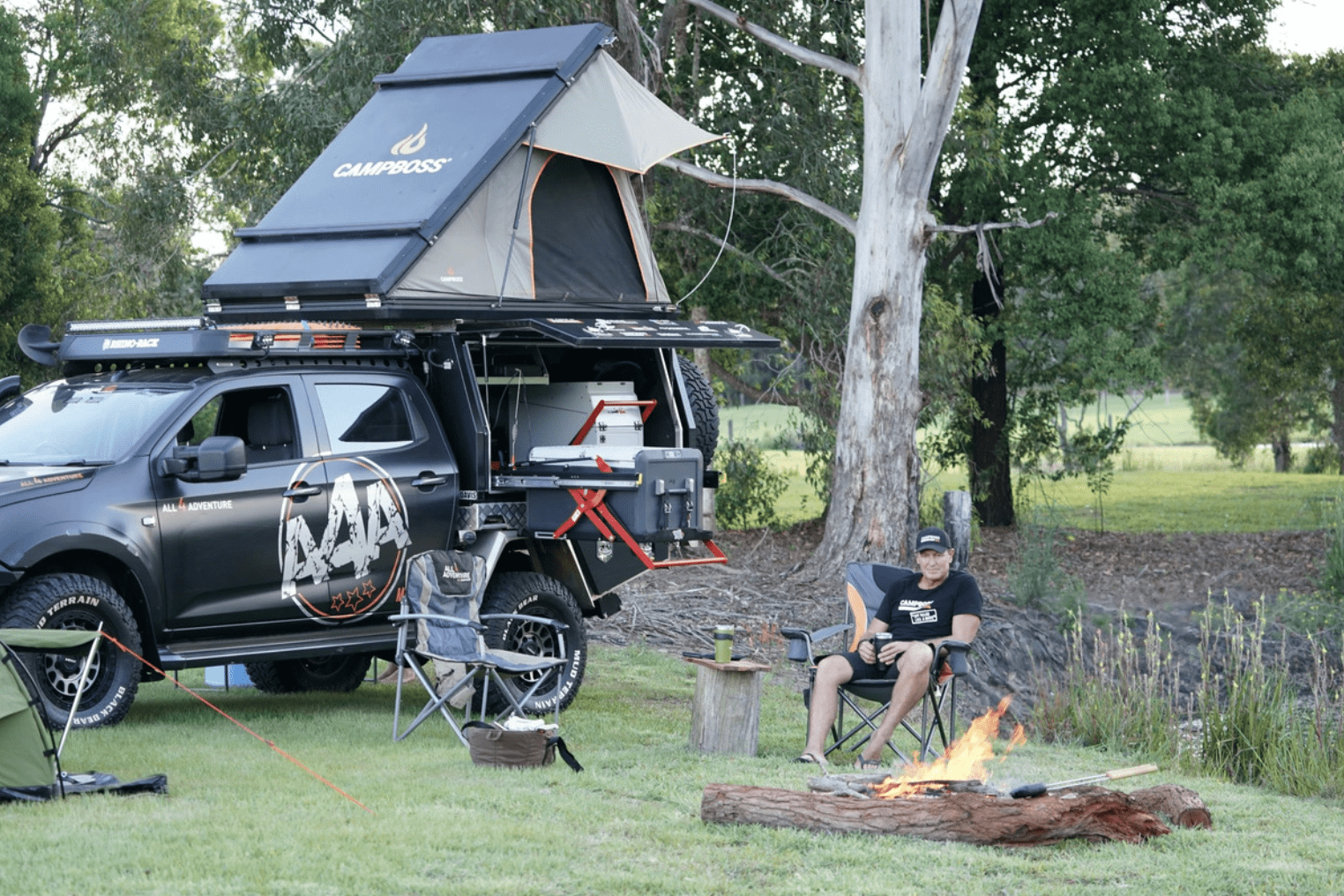Rooftop Tents - What is the best material?

All roof top tents are not made equal. If you're shopping for camping equipment or a gift for someone who loves camping, keep this in mind. In reality, as you'll see, the material on a tent is an important consideration in the buying process. Continue reading to learn how to find proper roof top tents with the help of our simple guide.
Roof Top Tents made of cotton or canvas:
Cotton or canvas is one of the most frequent tent fabrics you'll come across. You can expect extra temperature regulation when you choose a cotton/canvas rooftop tent: Cotton is fantastic for keeping you warm, but it also breathes effectively when it gets too hot. Cotton is less prone to moisture than other tent materials. Not to mention the weathering... However, before using a canvas tent for the first time, it needs undergo a 'seasoning' process. Simply set up your tent ahead of time for your camping excursion and wait for it to rain. Alternatively, you can hose it down and let it dry in the sun over a few days to allow for the seams and stiches to tighten, creating a leak proof seal.
The cotton filaments will swell and nestle during this procedure, guaranteeing that your tent is waterproof for your camping vacation. If you don't weather your tent before going camping, you can end up with a few droplets of water coming through. Canvas rooftop tents normally only need to be seasoned once, but some rooftop tents need to be seasoned three times before they're completely waterproof. As a result, before heading out on your camping vacation with a new cotton/canvas tent, you might want to undertake some waterproof testing. Your new tent will be one of the most durable and waterproof tents available once it has been weathered. When camping, you'll want to be prepared in case it rains. Canvas rooftop tents like the Eezi Awn are on the slightly pricier side as they are generally more durable, regulate temperature better and dry faster.
Roof Top Tents with a PVC coating:
When purchasing a large cotton roof top tent, you may find that the outer has a polyvinyl chloride coating. This polyvinyl chloride coating on your canvas tent makes it waterproof right out of the box, so you won't have to weather it before going camping. The waterproof layer's only drawback is that it makes the tent more susceptible to moisture. If you want to buy a PVC-coated roof top tent, make sure it has enough ventilation so condensation does not become an issue. Tent materials come in a wide range of colours and textures, so be sure to read all the specification before purchasing.
Roof Top Tents made of polyester and cotton:
This is a mixture that is both strong and long-lasting. Although most polycotton tents have an additional waterproof layer that works as a water repellent, a polyester-cotton blend does not need to be coated to be waterproof. Looking for a tent that will endure a long time? Then the polycotton tent is one of your best choices. Polyester and cotton are also less expensive than other tent materials, which is why the AVENTA T-TOP TENT V2 & the DARCHE INTREPIDOR 1400 comes in at the lower end of the price range.
Roof Top Tents made of polyester:
Roof top tents that are entirely constructed of polyester are a popular choice. For new tent launches, many manufacturers choose the durability of polyester, which is somewhat more durable than nylon and comes in a range of coatings. You will, however, need to conduct some study before deciding on a specific polyester tent. The coating used on a polyester tent might have an impact on the tent's pricing. A polyester tent with a covering that allows for enough ventilation while keeping moisture out is ideal.
When you compare the features of a polyester tent to those of a polycotton tent, you'll see that they're pretty comparable. A polyester tent, on the other hand, has the advantage of neither shrinking or becoming heavier when exposed to water. Polyester tents are also less impacted by sunshine, making them suitable for camping in Australia's hot climate. One tent that truly stands out at the moment is the new Campboss roof top tent, made from polyester, cotton and canvas. An ideal combo that puts it a cut above the rest.
Tents made of nylon:
If you are a little bit hesitant to make the jump to a full blown rooftop tent, that's understandable. They are a big commitment and can sometimes be in the thousands. If roof top car tents are little out of your budget, try out a nylon tent. Hikers and campers may choose the nylon tent over any other type of tent. Because nylon is a light material, the tent's carry weight is kept to a bare minimum. Nylon tents are also among the most cost-effective options available. Because nylon fibres do not absorb water, a nylon tent without any additional coating is a great option. This also implies that when it rains, nylon tents do not become heavier or shrink. Nylon tents are sometimes treated with a protective coating. A silicone, polyurethane, or acrylic coating on a nylon tent is not uncommon. Because nylon is naturally water resistant, any coating applied should focus on durability.
The best overall protection is a silicone covering on a nylon tent. If money is a concern, an acrylic coating would be a better option. A ripstop weave is commonly used in the fabric of a nylon tent, making it particularly sturdy and durable. Before you buy a tent, make sure to look over the specifications. Whatever material you choose for your rooftop tent, we wish you the best of camping experiences and if you'd like to check out the accessories that make tent camping truly enjoyable head to our camping and outdoors section.


Leave a comment